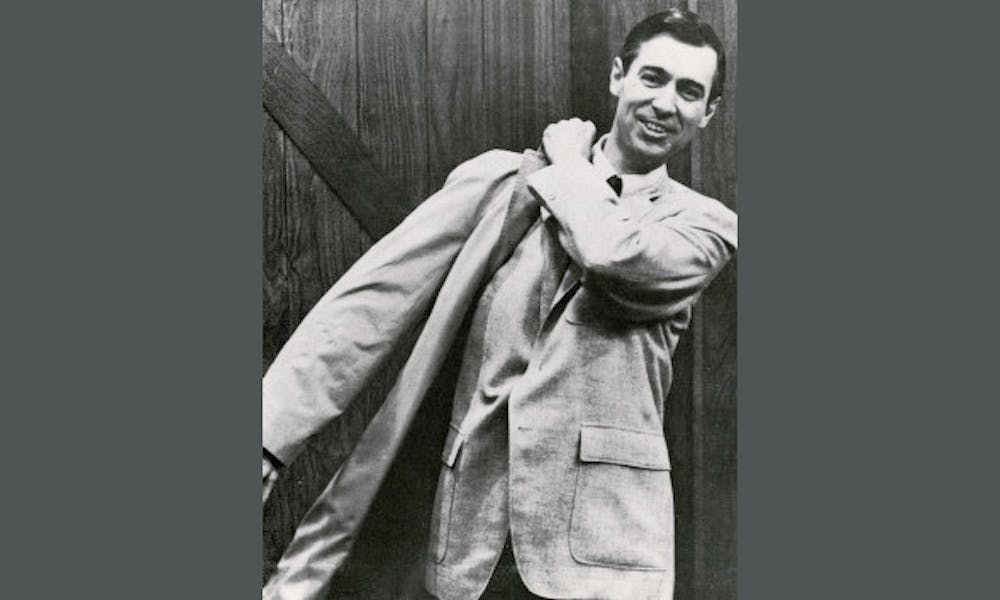
This summer, audiences have flocked to the theaters to watch an unlikely blockbuster, "Won't You Be My Neighbor?" The documentary follows the life of Fred Rogers, better known as the TV educator, Mister Rogers. Rogers once remarked, “How sad it is that we give up on people who are just like us?”
This month, approximately 10,500 Penn undergraduates, myself included, will move into West Philadelphia. Of these students, approximately 6,000 will move into University-owned housing with nearly 2,400 located in the high rises. The remaining 4,500 will be situated in off-campus rentals at the crossroads of a nationwide humanitarian crisis. This housing, known to Penn students as the epicenter of thriving residential programs, student life, and, most pragmatically, a place to crash for the duration of the school year, sits atop land once occupied by low-income families seeking affordable places to call home. However, University encroachment has since inaugurated unrelenting increases in rent prices, gentrification, and residential segregation, pushing out locals and transforming stable poverty into grinding poverty.
The story of West Philadelphia is often told as a tale of two cities, forked cleanly into the categories “campus” and “community;” but, despite the abundant residential segregation rendering vastly different lived experiences for inhabitants, the tale occurs within a single geographic space and is thus best told as an intertwined evolution of oppression defined by redlining, land grabs, and strategic buys, and reflected in the lives both at the mercy and behind the helm of such implementations. The story has origins in historic community engagement practices and paternalistic policies, home in the hearts of the locals pushed out by gentrification and eviction, and sustenance in the complacency and blind eyes of the current inhabitants. The story’s future lies in our hands, current Penn affiliates.
Many of us, as first-year students mandated to move into University housing or upperclassmen seeking residences near campus, are unavoidably faced with participation in a morally questionable program. Nonetheless, we are privileged with the potential to be good neighbors. In fact, it is an ethical obligation. Through over a year of research on housing insecurity in West Philadelphia, I have sought to understand what it means pragmatically to be a good neighbor amid the current state of urban affairs.
Through my research I have learned of the immense burden transient occupants pose to the West Philadelphia community.
“I just wish people would care more,” Regina Brewington, a long-term 19104 resident, told me one evening. She proceeded to tell me of the construction done next door which came without warning and left water leaking through her basement wall and steps, and of the couch her neighbors had left sitting at the border of their properties for nearly a month. “To me [it shows] that they just don’t care,” Brewington remarked.
Despite being short-term occupants, as student residents of the West Philadelphia community, we are not exempt from our civic duties and humane responsibilities. We must be active participants in our communities rather than disinvested transients.
Community disinvestment not only contributes to dilapidated neighborhoods, it decreases community capacity to effect change and to organize for collective wellbeing — factors which predispose communities to high rates of eviction. Sociologist Matthew Desmond claims that eviction is “a cause, not just a condition of poverty.” The eviction of a single family can destabilize an entire block leading to exponential subsequent evictions.
With 9.3 percent of renters displaced from their homes in 2015, Philadelphia is a national leader in renter displacement. Although not included in typical measurements of housing insecurity (measured by forced moves), moves which result from people seeking more invested communities are last-resort in nature and of great impact. Thus, the burden of housing insecurity, broadly defined, is immense.
As incoming members of the West Philadelphia community, it is our responsibility to help mitigate the cycle of poverty in West Philadelphia by being invested community members. In addition to basic property upkeep, we must strive for positive interpersonal relations with our neighbors. We must inform our neighbors of potentially impactful property upkeep we are planning and lend a hand when possible. When invited, we must attend civic association meetings where we must listen openly and empathetically to the concerns of our neighbors. Likewise, we must extend the invitation to our neighbors for seats at our own tables.
For too long, campus and community have remained divided in a shared space. Presently, many of us do not have the choice to opt out of campus housing. But, we do have the option to be participants in the West Philadelphia community and the ethical obligation not to give up. Initiating collaboration is essential.
SAMANTHA STEIN is a College junior. Her email address is swstein@sas.upenn.edu.
The Daily Pennsylvanian is an independent, student-run newspaper. Please consider making a donation to support the coverage that shapes the University. Your generosity ensures a future of strong journalism at Penn.
Donate







